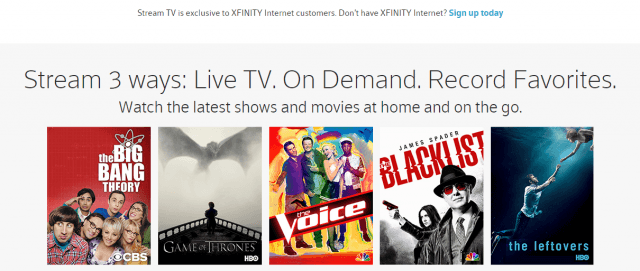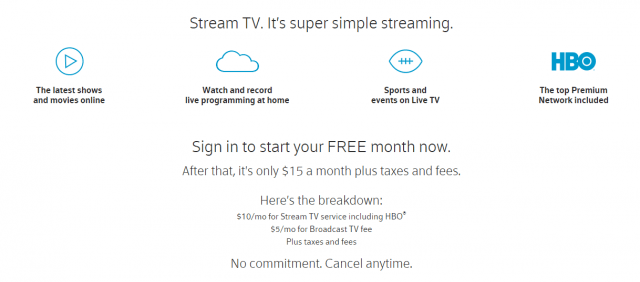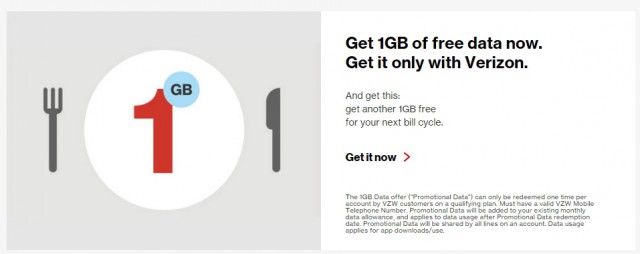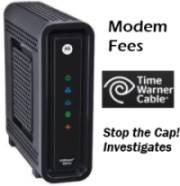 Comcast is inviting controversy launching a new live streaming TV service targeting cord-cutters while exempting it from its own data caps.
Comcast is inviting controversy launching a new live streaming TV service targeting cord-cutters while exempting it from its own data caps.
Comcast’s Stream TV is comparable to Comcast’s Limited Basic lineup, only instead of using a set-top box, Stream TV delivers online video over the Internet to Comcast’s broadband customers in Massachusetts, New Hampshire, Maine and the Greater Chicago area. For $15 a month, Stream TV offers a large package of local over the air stations, broadcast networks, and HBO, along with thousands of on-demand titles and cloud DVR storage. In Boston, the lineup includes:
WGBH (PBS), HSN. WBZ (CBS), NECN, WHDH (NBC), Community Programming, BNN-Public Access, WWDP-Evine Live, WLVI (CW), WSBK (MyTV), WGBX (PBS), WBIN (Ind.), WBPX (Ion), WMFP (Ind.), The Municipal Channel, Government Access, WFXT (FOX), WCEA (MasTV), WUNI (Univision), EWTN, C-SPAN, CatholicTV, POP, QVC, WYDN (Daystar), WUTF (UniMas), WNEU (Telemundo), Jewelry TV, XFINITY Latino, WGBH World, WGBH Kids, Trinity Broadcasting Network, WGBH Create, Leased Access, WBIN-Antenna TV, WBIN-GRIT TV, WNEU-Exitos, WLVI-BUZZR, WCVB (Me-TV), WFXT-MOVIES!, WHDH-This TV, WFXZ-CA, WUNI-LATV, WFXZ (Mundo Fox), WBZ-Decades, and WFXT-Laff TV + HBO. The package also qualifies the customer as an authenticated cable TV subscriber, making them eligible to view TV Everywhere services from many cable networks.

Comcast is offering the first month of Stream TV for free with no commitment to its broadband customers subscribed to at least XFINITY Performance Internet (or above). Up to two simultaneous streams are allowed per account and some channels may not be available for viewing outside of the home. Comcast claims it will expand Stream TV to Comcast customers nationwide in 2016. Comcast will not be selling the service to customers of other cable or phone companies, limiting its potential competitive impact.
Competitors like Sling TV offer their own alternatives to bloated cable TV subscriptions at a similar lower price, and they will sell to anyone with a broadband connection. Sling alone is partly responsible for Comcast’s loss of hundreds of thousands of cable TV customers who don’t want to pay for hundreds of channels many never watch. That Comcast might want to launch its own alternative online video package to retain customers is not a surprise. But Comcast’s decision to exempt Stream TV from the company’s data caps while leaving them in place for competitors is sure to spark a firestorm of controversy.
 Comcast claims it is reasonable to exempt Stream TV from its 300GB data cap being tested in a growing number of markets.
Comcast claims it is reasonable to exempt Stream TV from its 300GB data cap being tested in a growing number of markets.
“Stream TV is a cable streaming service delivered over Comcast’s cable system, not over the Internet,” wrote Comcast in its FAQ. “Therefore, Stream TV data usage will not be counted towards your Xfinity Internet monthly data usage.”
More precisely, Comcast claims it relies on its own internal IP network to distribute Stream TV, not the external Internet competitors use to reach ex-Comcast cable TV subscribers. Comcast’s premise is it is less costly to deliver content over its own network while Internet traffic comes at a premium. Critics will argue Comcast has found an end run around Net Neutrality by relying on usage caps to influence customer behavior.
For the moment, Netflix is reserving comment after being contacted by Ars Technica. But Sling TV and other services that depend on Comcast’s broadband to reach customers will likely not remain silent for long.
Comcast could effectively deter consumers from using competing online video services with the threat of overlimit fees if customers exceed their usage allowance. The cable company could even use the fact its services don’t count against that allowance as a marketing strategy.
Stop the Cap! has warned our members about that prospect for years. Preferential treatment of certain content over others by playing games with usage caps and overlimit fees could have a major impact on emerging online video competition. Since Comcast owns both the broadband lines and the online video service, it can engage in anti-competitive price discrimination. Competitors will also argue that Comcast’s internal IP network is off-limits to them, making it impossible to deliver content on equal terms over a level playing field.

The next move will likely come from the FCC in response to complaints from Comcast’s competitors. As Ars Technica notes, the Federal Communications Commission’s Net Neutrality rules allow for complaints against so-called zero-rating schemes, with the commission judging on a case-by-case basis whether a practice “unreasonably interferes” with the ability of consumers to reach content or the ability of content providers to reach consumers.
With Comcast’s usage caps and overlimit fees, the only reaching will be for your wallet. Consumers need not wait for Sling TV and others to complain to the FCC. You can also share your own views about Comcast’s usage caps by filing a complaint with the FCC here.


 Subscribe
Subscribe Since Verizon Wireless stopped selling unlimited data plans and turned data into a precious commodity usually worth about $10 per gigabyte, the company can afford to give some of it away to their loyal customers.
Since Verizon Wireless stopped selling unlimited data plans and turned data into a precious commodity usually worth about $10 per gigabyte, the company can afford to give some of it away to their loyal customers. Time Warner Cable customers who purchased their own cable modems to avoid the company’s $8 monthly rental fee will effectively be forced to indirectly pay those fees once again if Charter Communications wins approval to buy the cable operator.
Time Warner Cable customers who purchased their own cable modems to avoid the company’s $8 monthly rental fee will effectively be forced to indirectly pay those fees once again if Charter Communications wins approval to buy the cable operator. Zoom wants Charter to be required to offer consumers that own their own equipment a tangible monthly discount for broadband service as a condition of any merger approval.
Zoom wants Charter to be required to offer consumers that own their own equipment a tangible monthly discount for broadband service as a condition of any merger approval. Less than a week after ISIS-connected terrorists is Paris allegedly killed at least 129 people in a coordinated attack, false reports continue to be spread through news services and social media. It’s enough to make you cringe.
Less than a week after ISIS-connected terrorists is Paris allegedly killed at least 129 people in a coordinated attack, false reports continue to be spread through news services and social media. It’s enough to make you cringe.



